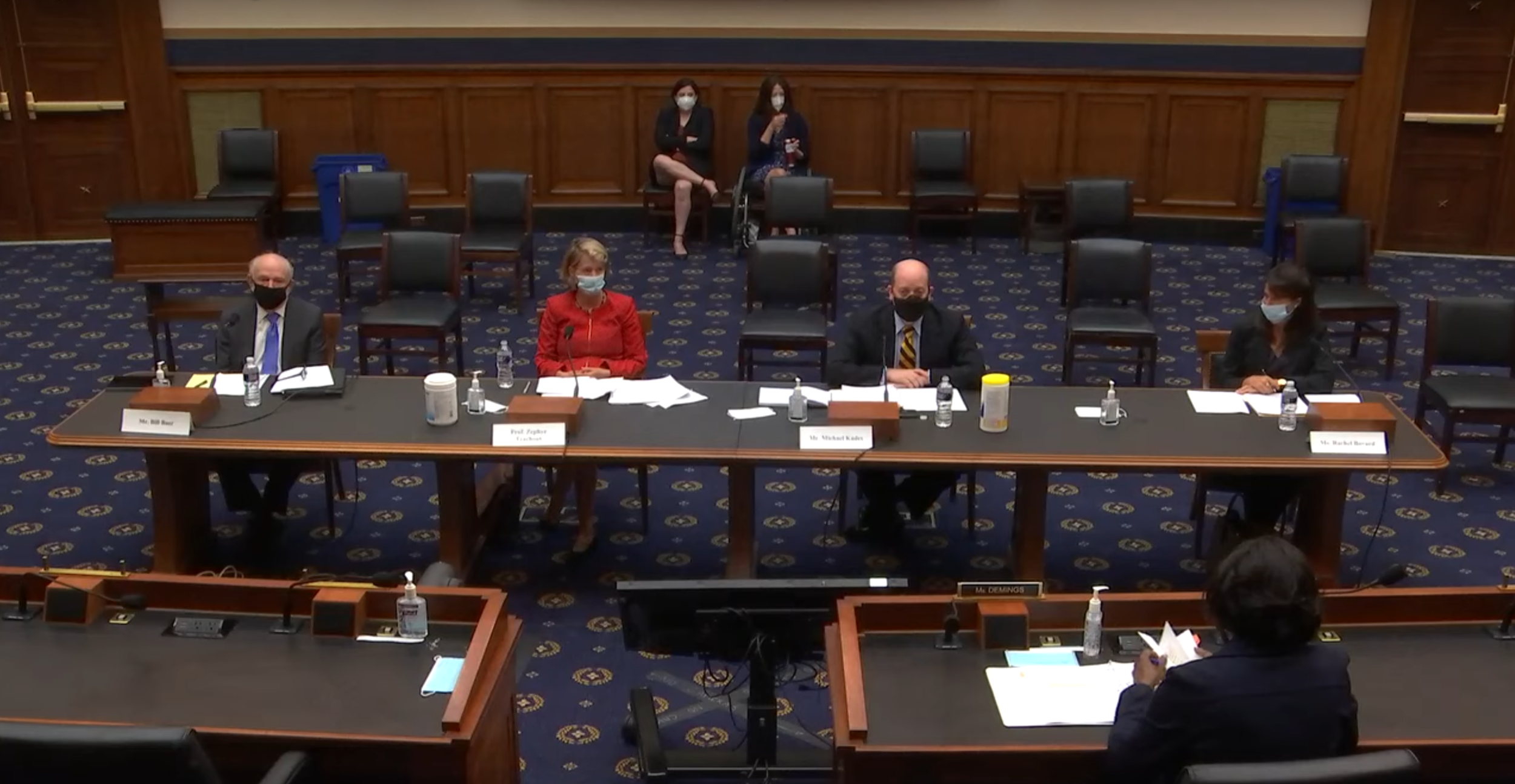Open Markets Institute releases a statement saying: The U.S. v. Facebook complaint is a critical step toward ending the corporation’s dangerous control over the flow of information and stopping its monopolistic pattern of buying, copying, or killing competitors.
Read MoreOpen Markets Institute filed an amicus brief in a case before the Supreme Court, AMG Capital Management, LLC v. FTC urging the court to protect the FTC’s ability to recover money from violators of competition and consumer protection law.
Read MoreOpen Markets Institute urges DOJ to challenge ViacomCBS’s plans to sell the Simon & Schuster book publisher to Penguin Random House, and calls on the DOJ to immediately take steps to break Amazon’s power over the sale and distribution of books in America.
Read MoreOpen Markets Institute is thrilled to announce that Rana Foroohar has agreed to join our board of directors. Rana is the global business columnist and an associate editor at the Financial Times and is the global economic analyst at CNN.
Read MoreOpen Markets Institute joins Family Farm Action Alliance in releasing a groundbreaking report titled, “The Food System: Concentration and Its Impacts,” at a virtual event featuring Sen. Cory Booker. The report was authored by Dr. Mary Hendrickson, Dr. Phil Howard, Emily Miller, and Dr. Douglas Constance.
Read MoreNew report details how America’s neoliberal vaccine production model is to blame for production obstacles to COVID-19 vaccines, skyrocketing prices, and return of curable diseases.
Read MoreUber and other powerful gig platforms on Tuesday rewrote California employment law in their own favor and against their workers’ interests by bankrolling the most expensive ballot measure in California history: Proposition 22.
Read MoreThe Open Markets Institute, along with 36 public advocacy organizations and six scholars, sent the Federal Trade Commission a letter today requesting a status update on their joint petition for rule-making to ban exclusionary contracts.
Read MoreOpen Markets Institute is excited to announce that Sally Hubbard, our director of enforcement strategy, today released her first book, “Monopolies Suck: The 7 Ways Big Corporations Rule Your Life and How to Take Back Control”.
Read MoreOpen Markets Institute applauds the groundbreaking U.S. v. Google complaint for taking strong antitrust action against Google, but notes that it only addresses a portion of Google’s monopolization.
Read MoreOpen Markets Institute applauds Rep. David Cicilline and the House Judiciary Subcommittee on Antitrust’s report and recommendations based on its 17-month investigation of America’s largest tech companies: Amazon, Google, Facebook, and Apple.
Read MoreCongress implored to act swiftly to rein in Big Tech’s anti-competitive behavior and acquisitions at the October, 2020, House Judiciary Antitrust Subcommittee hearing.
Read MoreOpen Markets Institute Executive Director Barry Lynn releases, “Liberty from All Masters: The New American Autocracy vs. the Will of the People” as the House prepares for another hearing on Big Tech’s antitrust abuses. Lynn details how to protect our liberty and control Big Tech’s power with the laws we already have.
Read MoreOpen Markets Institute released a new report revealing how many farmer co-ops have subverted anti-monopoly measures and grown into monopolies that prey upon their members. The report, called “Redeeming the Democratic Promise of Agricultural Cooperatives,” proposes a set of reforms and increased antitrust enforcement that could rebalance agricultural markets to serve the public interest again.
Read MoreNew report details the dangers of Amazon’s pervasive worker surveillance and proposes solutions that stop surveillance and increase worker power.
Read MoreOpen Markets’ report uncovers true culprit of book shortage: destructive mergers.
Read MoreGovernment’s failure to prohibit platform monopolists from discriminating exemplified in Amazon’s continued anti-competitive behavior against publishers and authors.
Read MoreOpen Markets Institute releases a statement emphasizing the need to preserve good antitrust doctrine and to protect the public from tying by monopolists.
Read More

















